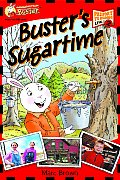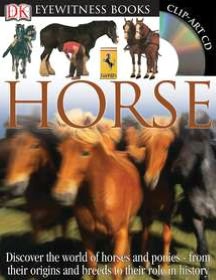Every autumn for the past 30 years, the American Library Association has celebrated your right to read whatever you choose with an event called Banned Books Week. Banned books are materials that have been removed from a library “based upon the objections of a person or group… thereby restricting the access of others.” You have the freedom to decide for yourself and for your family if a book is worth your reading time, and this freedom is a liberty librarians defend daily. Take a look at the following books that have been banned from a library – can you guess why someone argued that you should not be allowed to read this book?

Buster’s Sugartime by Marc Tolon Brown (Little, Brown Books for Young Readers 2006)
Challenged, but retained at the Union, Okla. District elementary school libraries (2009) despite a parent’s complaint that the book features two same-sex couples and their children.

Horse by Juliet Clutton-Brock (Knopf, 2000)
Challenged, but retained at the Smith Elementary School in Helena, Mont. (2004) despite a parent’s concern that it “promotes evolution.”
Harry Potter and the Sorcerer’s Stone by J.K. Rowling (Scholastic, 1999)
The Gwinnett County, Ga. school board (2006) rejected a parent’s pleas to take Harry Potter books out of school libraries, based on the claim they promote witchcraft. The Georgia Board of Education ruled December 14 that the parent had failed to prove her contention that the series “promote[s] the Wicca religion,” and therefore that the book’s availability in public schools does not constitute advocacy of a religion.
Source: ala.org/advocacy retrieved October 18, 2012











I have a real love-hate relationship with Banned Book week. (http://fictionbyosterman.blogspot.com/2012/10/banned-book-week-my-love-hate.html)
I understand concerns about some books being challenged on odd reasons, or people trying to get certain books out of public libraries, thereby affecting ~everyone else’s~ right to read them. That’s not cool. You may not approve of the morality of The Hunger Games, but ~I~ have a right to read it if I want to. Ditto for books about Mr. Grey.
But it seems that the line between libraries and ~school~ libraries (where the only real customers are children) gets blurred in this discussion, as does the line between “Adult Fiction” and “Youth Fiction” or “Young Adult Fiction”. If I ask that a book not be made accesseble to my ~child~, that counts, as far as I can tell, as an official “challenge” and moves the book up on the “Banned” list.
I’m not asking that book be banned from a public library, or that it be burned, or that the author be forced to go all Solomon Rushdie. I’m asking they move the book to the adult section, or that they not put the tales of Ana Steele where my 5 year old can pick it up.
Sure, you could say “At Least He’s Reading!” (http://fictionbyosterman.blogspot.com/2012/04/at-least-theyre-reading.html) but… yeah.. not a fan of that either. 🙂
Rob, you bring up some really good points. I agree that there is a difference in audience to consider when purchasing books for, say, an elementary school library, as opposed to purchasing books for a public library serving all ages. I believe that parents have the right to say “this book is not right for my child” – I’ve steered my own kids away from books that they weren’t emotionally ready for – but it gets tricky when others start to say “this book is not right for *any* child”. No, I wouldn’t put “The Joy of Sex” in a fifth grade classroom just to make a point about our freedom to read what we choose. But someone suggesting the book about horses shouldn’t be in a school library because it promotes evolution – I do have a problem with that. Who gets to decide what books go in the library? Hopefully a well-trained librarian who understands the needs of the community, is reasonable about where books are shelved, and has respect for free access to information.
I think it’s so important to keep talking about issues like this. Thanks for adding to the discussion, Rob! (Cool website, by the way! Thanks for the heads-up!)